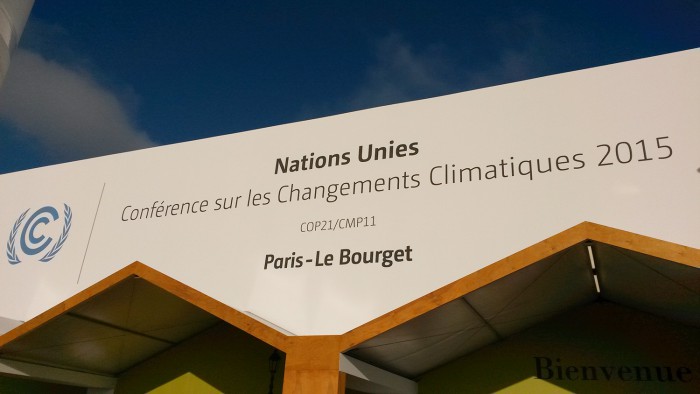When I woke up (at a not very nice time) on 1 December, it was Day 2 of COP21.
Little did I know that by the time I next shut my eyes I would have discussed the chances of success of the climate conference with His Royal Highness the Prince of Wales, shook President Hollande’s hand, zapped up and down between Paris and Le Bourget as part of a motor convoy with flashing blue lights, and spent an evening shadowing a personal protection officer of the royal family.
Oh, and I almost forgot: getting to actually go to COP21 and see the leaders and ministers, not to mention people from all around the world, coming together to try to find a way through the difficult question of: how do we tackle climate change?
I’ve been to another “Conference of Parties” last year, in Lima. It was my first time, and like all first times, I emerged from the experience slightly less innocent than when I went in: the world of UNFCCC is a strange one, constructed of rooms full of negotiators (whose lives are subsumed by the semi-colons and acronyms that can ultimately make or break a climate agreement), corridors of people huddling and whispering, brightly-dressed delegations from the four corners of the world, and events and discussions and debates happening everywhere you turn.
Going up to Le Bourget I wasn’t sure what to expect, despite no longer being a UNFCCC beginner. Certainly not the sunshine and warmth of Peru, but that’s the downside of the northern hemisphere hosting a COP (which always happen in December).
But lo and behold if there wasn’t another unexpected sort of warmth: Parisians in shiny green coats, the COP21 leaf-with-bite-out logo proudly brandished, welcoming us off the train and onto the fleet of shuttle buses. Perhaps the change in cliché is a reflection of knowing these 40,000 people are coming to France because they care about the environment.
COP21, as an event for the British Embassy in Paris, is rather monumental.
Aside from the actual objective of the conference (“save planet” – not sure that would pass the SMART criteria?) there is all the planning and policy work that goes into the preparation which has kept us busy since, oh, January: volunteers mobilised across the France Network, people working around the clock (literally) to plan and deliver VIP or ministerial visits, endless briefing, head-scratching, but all done with such enthusiasm and superb teamwork that – haggard faces aside, and caffeine consumption through the roof – we might be able to say afterwards, a bit like childbirth, “that was fun! Shall we do it again?”
Well – we won’t have to, or at least, not in my lifetime. COP22 is already being planned by Morocco (good luck to our colleagues in Rabat!) for December 2016, and other nations will host for forthcoming years.
Paris will definitely leave a legacy – but it’s hard to say right now just what, as negotiations are only just getting underway. But I am tentatively confident: if any country can pull it off, France can. So: good COP, bad COP? Rendez-vous next Friday to find out.

